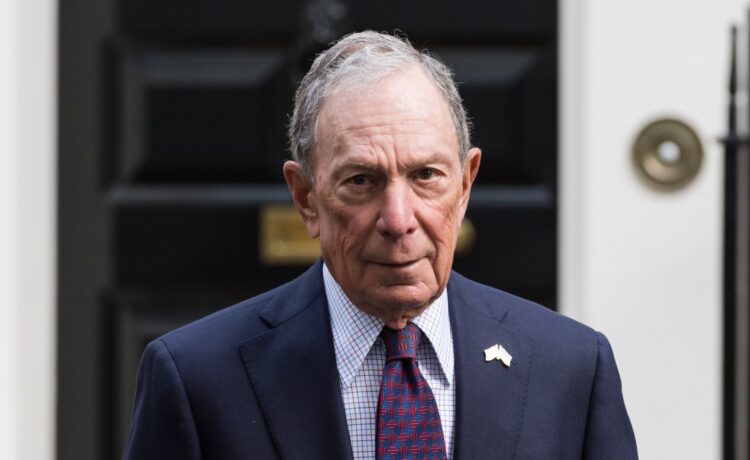I have never been more bullish on the UK’s future.
Sure, a new and untested government that the public is still getting to know is facing big challenges. And sure, there are reasons to be concerned about the short term, including questions swirling around their upcoming budget. But countries are not made or broken by one budget cycle. Here is the long-view.
The UK is Europe’s fastest growing economy. It has weathered the storms of Brexit and Covid. London remains one of the world’s great international capitals. Most importantly, the country holds competitive advantages in many areas that are crucial both to individuals (quality schools, exciting arts and culture, diversity and tolerance, safe neighbourhoods) and investors (its language, time zone, educated workforce and strong legal protections).
A decade ago our company decided to build our European headquarters here in the City even as some were predicting that the UK’s best days were behind it. I had heard those kinds of predictions before, back in my own hometown, New York City. But to be successful, we always plan for the future, not where we’ve been.
I was elected mayor seven weeks after the terrorist attacks of 9/11. It is easy to forget now, but back then many experts feared the worst: fleeing residents and businesses coupled with rising crime and dysfunction. Instead the opposite happened.
How, you ask? Like the UK’s government now, we faced an enormous budget shortfall that required hard decisions. Before the attacks, I had campaigned on not raising taxes but the reality was that the recession and job losses we were facing after 9/11 were so severe that balancing the budget on cuts alone would have decimated services, sending the city into a death spiral.
We refused to do that. Instead, we raised property taxes and adopted a temporary income tax surcharge. They were, of course, very unpopular and my polls plummeted to record lows but the revenue allowed us to stave off the worst cuts and invest in the future: build for tomorrow, including in neighbourhoods outside Manhattan that had been neglected for too long.
Some companies and wealthy individuals threatened to leave, and some did, but our goal was not to maintain the status quo; it was to grow, by investing in the future. And the critical piece of this story that often gets overlooked is not who left; it’s who stayed — how people in New York responded.
By asking everyone to shoulder some of the burden we encouraged a sense of shared ownership over the success that followed, as residents saw the difference we were making, from fixing broken schools and improving essential services to building new parks and cleaning the city’s air. As that happened, confidence returned. More young people wanted to move there. More families decided to stay. More businesses wanted to expand. And those companies and individuals who had abandoned the city? Many decided to come back. They were the employees, customers and opinion-makers that companies needed. By the time we left office the city’s population was at an all-time high. So was its number of private-sector jobs.
All of that was possible because New York City invested in its foundational strengths, many of which we share with London, and just as we worked to spread those strengths beyond Manhattan, Sir Keir Starmer has an opportunity to spread them beyond London.
The Labour Party won the election because Starmer effectively positioned the party as pro-business, pro-growth and pro-improvement in living standards, full of opportunity for those starting their careers and those who over the years have built what we have today. Now, of course, comes the hard part: delivering.
All business leaders in Britain will be looking at this month’s budget closely. I have never put much stock in threats by the wealthy to abandon a great city over taxes and, as far as companies go, if taxes are the difference between success and failure you do not have a business. Nevertheless, the government must take care to safeguard the City of London’s status as an international centre and a magnet for Britain’s entrepreneurs and everyone at all economic levels.
Beyond the budget, there are other important longer-term investments the government can make. Chief among them, I hope, will be developing closer economic relations with the EU to repair some of the damage wrought by Brexit. Laying the groundwork for joining the customs union, or something that approximates it, would be an extraordinary investment in the UK’s future that would send a clear signal to investors about the government’s commitment to expanding the UK’s global economic footprint.
Our company has continued to expand in the UK since opening our European headquarters in London in 2017 and I expect we will continue growing here. Along the way we have formed close partnerships with Sadiq Khan, the London mayor, including in the bold work he has led on air pollution, climate change and making streets safe for more than just cars and lorries, all of which are helping to make London an even better place to live and work, and an even more attractive destination for new residents and new investments.
So while the news is full of reasons to be sceptical and pessimistic, and sometimes government leaders feed on that for political reasons, it is the long view that matters and, with strong leadership that brings people together and asks everyone to share in the burdens and benefits, there is every reason to believe that the UK’s best days are still ahead of it.
Michael R. Bloomberg, founder of Bloomberg and Bloomberg Philanthropies and three-term mayor of New York City

















